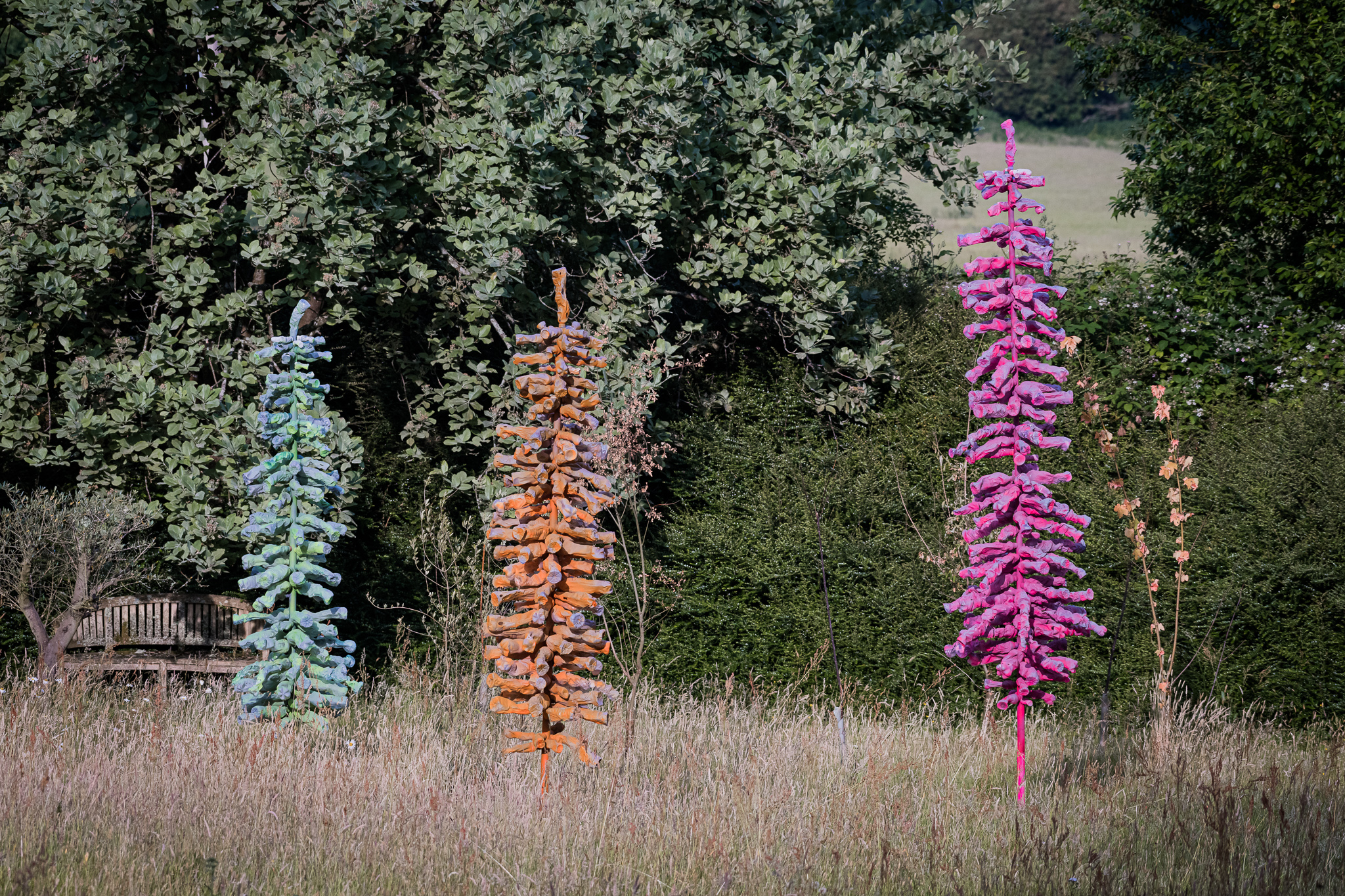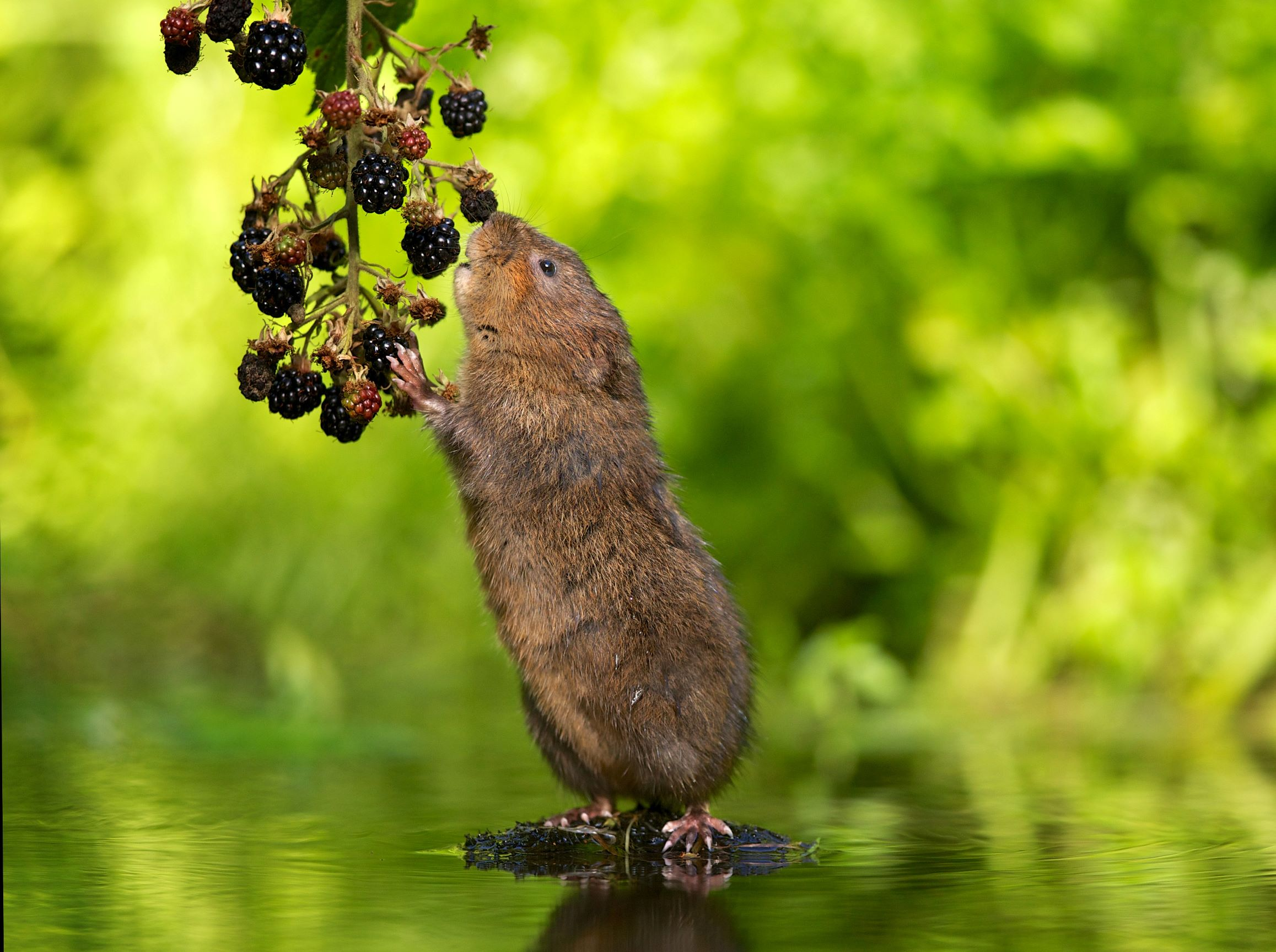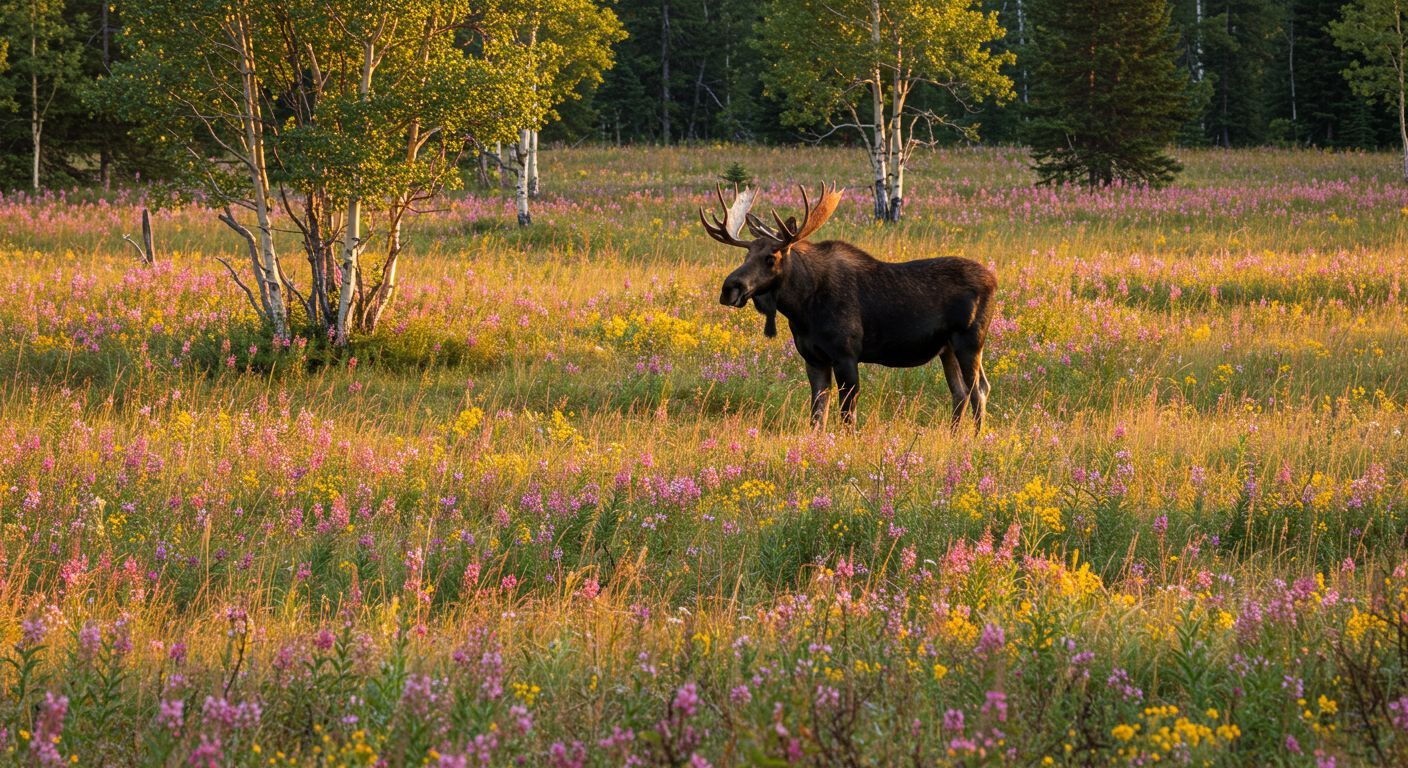At LettsSafari, we believe nature and creativity go hand in hand. So we’re thrilled to share that our sister venture, LettsArt, has just reached a major milestone: 1,000 artists and gallerists are now using LettsArt’s powerful tools to share, promote, and sell their art online.
From emerging digital artists to regional museums and retired professionals reigniting their creative spark, LettsArt empowers a diverse global community to thrive and we couldn’t be prouder.
But this celebration isn’t just about art online. It’s also about art outside.
One of LettsArt’s most inspiring galleries showcases the outdoor art at Devon Sculpture Park(DSP), nestled in one of LettsSafari’s own rewilding estates. This unique location blends open-air art with the living, breathing textures of nature. As Britain’s leading outdoor art park for ecological art and rewilding, DSP brings together artists, conservationists, and visitors who understand that creativity can help reframe our relationship with the natural world.

At LettsSafari, we restore wild spaces, from gardens to parks, through rewilding. LettsArt, on the other hand, helps creatives restore cultural space by making art more visible and accessible. When these missions align, something beautiful happens.
Art tells the story of change. Nature shows the change in action. Together, they inspire us to care, to protect, and to reimagine our world.
Whether it’s a sculpture nestled among wild grasses or a digital gallery exploring climate themes, these shared spaces between art and nature are powerful platforms for expression, dialogue, and regeneration.

LettsArt and LettsSafari are part of a broader vision: to support creators, whether artists or land stewards, and help their work thrive in harmony with the planet. So today, we raise a leaf (and a paintbrush) to LettsArt and its vibrant community of 1,000 galleries. Here’s to the next thousand and to a world where creativity and conservation grow side by side. to start your own online gallery!
Want to see art and rewilding in action? Subscribe to LettsSafari to support rewilding or sign up to lettsart.com to start your own online gallery!
Once a familiar sight across the UK’s waterways, the water vole, immortalised as Ratty in The Wind in the Willows, has become one of our most threatened mammals. Habitat loss, pollution, and the invasive American mink have driven a staggering 94% population decline since the 1950s.
But now, a wave of hope is rippling through our rivers.
A recent BBC report shines a spotlight on an ambitious reintroduction program in Lancashire. 204 captive-bred water voles were released into newly restored habitats along the River Lune. It's a project led by the Wildlife Trust for Lancashire, Manchester and North Merseyside , and it offers a powerful example of what’s possible when conservation and community come together.

At LettsSafari, we know just how critical these efforts are. Last year, we celebrated the return of water voles to another carefully rewilded site as part of our broader campaign to revive endangered species through small-scale nature restoration. Read more about that here.
Why water voles matter:
They’re ecosystem engineers, creating burrows and canals that support many other species.
They’re a keystone species in wetland environments, helping balance aquatic plant life.
And they're a vital reminder that even the smallest creatures deserve protection.
What connects projects like Lancashire’s and LettsSafari’s is a belief in local rewilding as a powerful climate and biodiversity solution. It doesn't require hundreds of acres, just commitment, creativity, and community.
Whether it’s restoring riverbanks, managing invasive species, or simply planting the right vegetation, every action counts.
With every LettsSafari subscription, you help restore vital microhabitats for numerous species of plants, trees and animals (including voles!). You’ll also receive nature tips to rewild your own patch – no matter how small. Together, we can get nature to come back.
👉 Join the movement at LettsSafari.com
May is Mental Health Awareness Month - a timely reminder that wellbeing isn’t just a personal priority, but a business imperative. In today’s fast-paced, always-on world, stress, burnout, and disconnection are taking their toll. That’s where nature comes in.
Research continues to show that time spent in natural environments reduces anxiety, lifts mood, and restores focus. But what if you could bring that restorative power of nature into your company - not just with office plants, but with real impact?
GreenTeam is LettsSafari’s rewilding initiative for businesses. It lets companies fund local nature restoration projects - from wildflower meadows to native woodlands - while giving employees a tangible connection to the natural world and a sense of shared purpose.
It’s more than CSR. It’s a movement for employee wellbeing, team engagement, and planetary repair.
Wellbeing Boost: Supporting rewilding projects gives employees a meaningful way to contribute to environmental recovery - known to improve mental health, reduce eco-anxiety, and foster a sense of hope.
Connection and Culture: Teams receive monthly digital updates and tips on how to rewild at home, helping them connect with nature, with each other, and with a cause larger than themselves.
Purpose-Led Engagement: Today’s workforce values impact. GreenTeam helps you demonstrate real environmental commitment while making your people feel good about where they work.
Visible Impact: Each subscription supports real-world rewilding - with stories, stats, and visuals your teams can follow and be proud of.

GreenTeam is easy to roll out and starts with just 10 employee subscriptions. Whether your team is fully remote, hybrid, or office-based, LettsSafari helps you bring nature back into their lives. Plus, like all LettsSafari subscriptions:
For every 10 employees subscribed, we plant a tree each year the subscription is valid.
For every 100 employees, we release an endangered animal back into the wild each year.
For every 10,000 employees, we open a new rewilding safari park each year.
This Mental Health Awareness Month, let your business be part of the solution. For your people and the planet.
Ready to join the GreenTeam? For more information and to subscribe, visit LettsSafari GreenTeam.
Last week’s headlines were dramatic: elk, one of Europe’s largest land mammals, are being reintroduced to the UK in a pioneering rewilding project in Derbyshire and Nottinghamshire. Once native to Britain but extinct for thousands of years, these giants will soon roam once more, reshaping landscapes and ecosystems in their wake. It’s bold, ambitious, and deeply inspiring. And it raises an important question:
Where do the rest of us fit in?
Projects like the elk reintroduction capture attention for good reason. Large herbivores like elk play a powerful role in ecosystem restoration. They create open habitats, support plant diversity, and provide food and shelter for smaller creatures. Their return is a symbol of what’s possible when we give nature room to recover.
But these kinds of rewilding efforts usually require vast tracts of private land, expert oversight, and significant funding.
That’s where LettsSafari comes in.
At LettsSafari, we believe rewilding shouldn’t just happen in remote estates or behind fences. It should happen everywhere - in gardens, parks, community spaces, even balconies.
Our mission is to make nature recovery accessible to all. Whether you're planting pollinator-friendly flowers in your back garden, restoring a pond in your local park, or sponsoring rewilding through a LettsSafari subscription - you are part of the movement.
Because real change comes not just from the few doing a lot, but from the many doing what they can.

Elk may make the headlines, but meadows, hedgerows, and wild corners do the daily work of restoring biodiversity. Together, these smaller efforts create a patchwork of wild across the country - connecting, amplifying, and complementing larger-scale projects.
LettsSafari supports this patchwork. We rewild land directly, provide tools and tips for individuals to do the same, and give subscribers a simple, impactful way to invest in nature.
The return of elk is an incredible milestone. But it’s not the whole story. The future of nature recovery depends on engaging everyone, everywhere. With every LettsSafari subscription, you help restore vital microhabitats. You’ll also receive nature tips to rewild your own patch – no matter how small.
👉 Join the movement at LettsSafari.com
In the UK, 8.7 million people now rely on antidepressants and some face therapy waiting‑lists of 18 months or more. Rewilders at the Sharpham estate in Devon looked at those numbers and asked a simple question: what if the land itself could be part of the cure?
Five years into its restoration, Sharpham has swapped dairy cattle for long grasses, wildflower meadows and barn‑owl hunting grounds. The estate now hosts retreats where NHS staff and people dealing with trauma practise mindfulness directly inside a thriving ecosystem.
Government‑funded “green social prescribing” pilots have now tracked more than 8,000 participants in nature walks, community gardening, wild swimming and conservation tasks. Happiness scores leapt from 5.3 to 7.5/10, while anxiety fell from 4.8 to 3.4 - all for about half the cost of a block of CBT. Researchers describe it as “better than medication” for many participants.

While Sharpham shows what’s possible on 550 acres, LettsSafari is pioneering “smaller‑scale rewilding” and building the world’s first network of rewilding safari parks in south‑west England. As a paid subscriber you fund tree‑planting and habitat creation, then “safari” via video, informative articles and wildlife photography - lowering the barrier for city‑dwellers who can’t reach vast estates every weekend. You'll also receive nature tips to rewild your own patch – no matter how small.
Sensory reset: Untamed spaces bombard the brain with fractal patterns, varied soundscapes and phytoncides from plants, all shown to lower cortisol and calm the amygdala.
Purpose and agency: Helping to restore a patch of land or log wildlife sightings gives immediate, visible results - a proven boost to self‑esteem and meaning.
Social connection: Group tasks like sapling planting or species surveys create low‑pressure communities that combat isolation.
Hope in action: Seeing biodiversity bounce back counters eco‑anxiety with tangible progress.
Visit or volunteer: Book a half‑day at a local project; even a single guided walk can reset your stress baseline.
Re‑green your commute: Swap one gym session a week for a stroll or cycle through the wildest route you can find.
Create a micro‑rewilding patch: Leave a corner of your garden or balcony pot to grow “scruffy”, add a small log pile and log the invertebrates that appear. We'll show you how in our Rewilding Guides!
Join the digital safari: LettsSafari’s online community shares content as well as useful hints and tips - collective motivation without leaving home.
Rewilding is often framed as a gift to wildlife, but the emerging evidence is clear: what heals ecosystems also heals people. Nature is ready to work alongside counsellors and doctors - and often for far less cost. The next step is simply to step outside, get our hands (a little) dirty and let the wild work its quiet magic.
Feeling inspired? Grab your boots, plant a tree, or fire up a LettsSafari subscription. Your mind, and the planet, will thank you.
Scaling Rewilding for Climate Impact: How LettsSafari Aligns with New Models Like High Fen
The rewilding of High Fen, a former daffodil farm in Norfolk, signals a major shift in how we think about nature recovery. Driven by a private company, Nattergal, and funded through the sale of biodiversity net gain (BNG) units, this project shows how degraded land can be transformed into vital wetland habitat - locking away carbon, supporting wildlife, and helping tackle the climate crisis.
At LettsSafari, we see High Fen as a powerful validation of the approach we champion: smaller-scale rewilding projects that make a measurable difference to biodiversity and carbon capture. While Nattergal is working at a 721-acre scale, LettsSafari focuses on connecting individuals, communities, and businesses to rewilding on a more accessible level - from gardens and parks to larger landscape projects. Both approaches are essential if we are to restore nature at the scale needed.

The lesson from High Fen is clear: degraded land can be restored and it doesn’t have to be pristine to start with. In fact, as Nattergal’s Matt Hay points out, the biggest gains can come from reviving landscapes that have been poorly used or drained. At LettsSafari, we work with similar sites, bringing life back to soils, ponds, hedgerows, and meadows that have been lost to monoculture or neglect.
Moreover, the High Fen project highlights another key trend that LettsSafari embraces: making nature restoration investable. By offering nature-based subscriptions and the ability to sponsor rewilding projects, LettsSafari invites individuals to be part of the solution. Both models recognise that public funding alone won’t achieve the scale of change required.
Finally, the success of High Fen underlines how rewilding is becoming mainstream. As the NFU acknowledges, even farmers are increasingly involved in nature-positive practices - though attitudes remain mixed. At LettsSafari, we celebrate this growing momentum. Our model makes it easier for people, whether they own land or not, to support, follow, and learn from rewilding efforts across the UK and beyond.

High Fen’s cranes, turtle doves, and lapwings are early signs of a recovering ecosystem. At LettsSafari, we aim to create thousands more mini-High Fens - a patchwork of restored habitats that together can help tackle the biodiversity and climate crises.
Because when nature wins, we all win.
With every LettsSafari subscription, you help restore vital microhabitats. You’ll also receive nature tips to rewild your own patch – no matter how small.
👉 Join the movement at LettsSafari.com
This year’s Earth Day calls on all of us to “Unite for renewable energy” – urging the global community to triple clean electricity by 2030. It’s a bold but essential goal. At LettsSafari, we believe that rewilding and renewable energy go hand in hand in creating a planet that thrives – for nature and for people.
Earth Day isn’t just a moment to reflect – it’s a rallying cry. And for us, every day is Earth Day. LettsSafari was born out of a desire to restore nature, fight climate change, and reconnect people with the wild – starting in our own backyards, parks, and local green spaces.
We create and support smaller-scale rewilding projects that regenerate and bring biodiversity back to life. But beyond the birdsong, butterflies, and blooming wildflowers, there’s something more powerful at work: nature's own clean energy system.
Healthy ecosystems are natural powerhouses. Wild grasslands and forests capture carbon, clean the air, and regulate temperatures. Wetlands act like natural batteries, storing carbon, purifying water, and buffering extreme weather. Every wild space we restore with your support is a step toward a cooler, more stable planet – the very outcome we seek with clean energy.
In fact, nature restoration and renewable energy are two sides of the same coin. If we’re serious about a sustainable future, we need both – clean electricity powering our lives, and wild landscapes powering the planet’s recovery.

At LettsSafari, we champion solutions that are practical, accessible, and scalable. Just as solar panels can be installed on rooftops, rewilding can start in your garden, on your street, or in your local park. By restoring these green patches, we create micro-habitats and carbon sinks that complement global climate efforts.
This World Earth Day, we invite you to take action:
Join the LettsSafari movement – support our rewilding work and get inspired to rewild at home.
Switch to renewable energy – power your home and lifestyle with clean sources.
Speak up – encourage others to connect the dots between energy, nature, and climate.
We may not all have solar panels or wind turbines, but we can all grow wildflowers, plant a tree, or support rewilding. And when we do, we become part of a global force for change – one that is restoring balance and building resilience for generations to come.
On this Earth Day, let’s unite – for renewable energy, for nature, and for a better future. Subscribe to LettsSafari TODAY! 🌍💚
#EarthDay2025 #LettsSafari #Rewilding #RenewableEnergy #ClimateAction
It's Easter, so here's one that's a little more light-hearted! The giant green egg-planet (below) isn't just LettsSafari's artistic whimsy - it's a perfect symbol for Easter's surprising connections to our planet's biodiversity! And no, we're not just yolking around. Ouch... While most people associate Easter with chocolate bunnies and pastel decorations, environmentally-minded celebrants are hatching a revolution that would make Mother Earth proud. You could call it "Operation Resurrection" for our ecosystems.

Did you know that the European hare - often confused with the "Easter bunny" - is actually a keystone species in rewilding projects across Europe? These "Easter hares" aren't delivering candy; they're delivering ecosystem services through their natural grazing patterns that maintain grassland habitats. Talk about multitasking! They're basically the unpaid landscapers of the natural world. No wonder they need a holiday.
"The irony isn't lost on us," says conservation biologist Dr. Emma Thorne. "The very animal we've turned into a chocolate novelty is critical for restoring biodiversity in certain European landscapes. It's like discovering Santa Claus is actually essential for arctic ice formation."

Easter's spring timing coincidentally aligns with critical breeding periods for countless species. This has inspired a movement of "quiet zone" Easter celebrations, where communities and church groups time their festivities to minimise disruption to wildlife. Because nothing says "Happy Easter" like respecting a woodcock's mating dance! If you've ever seen a woodcock's dance moves, you'd understand they need all the privacy they can get - those birds have rhythm that would make the Easter Bunny hop with envy.
The traditional Easter egg hunt is getting an eco-makeover through "seed eggs" - biodegradable egg-shaped containers filled with native wildflower seeds. Plant these little miracles and watch as they transform into micro-habitats for pollinators. Finally, an Easter egg that gives you something better than a sugar crash and chocolate-stained fingers!
"We've distributed over 50,000 seed eggs across urban areas," reports community organiser Wei Chen. "Children love watching their Easter eggs grow into wildflower patches that attract bees and butterflies. It's Easter magic that lasts well beyond Sunday brunch! And unlike chocolate eggs, these don't mysteriously disappear when parents get late-night munchies."

In the UK, conservation organisations have brilliantly repurposed Easter as an educational platform about ground-nesting birds whose populations have plummeted due to habitat loss. "Wild egg hunts" teach participants to identify and protect bird nests while connecting ancient fertility symbols to modern conservation needs. It's the only Easter egg hunt where finding nothing is actually a win for conservation.
So this Easter, as you admire that chocolate globe or colourful egg, remember you're holding more than a treat - you're holding a symbol of Earth's remarkable biodiversity and our opportunity to help it thrive. Now that's something worth celebrating.
And if anyone asks why you're planting your Easter eggs instead of eating them, just tell them you're expecting a different kind of miracle this year - the kind that doesn't require explaining to your dentist!
Become a member of LettsSafari this Easter and build rewilding safari parks and gardens with us. Some might even house Easter bunnies! Subscribe at LettsSafari.com.
This year’s RSPB Big Garden Birdwatch reveals a stark warning for UK wildlife lovers:
🕊️ Starling numbers are down 80% since the 1970s – hitting their lowest level ever in the 2025 count.
🐦 Greenfinches have dropped by 86% in just 30 years.
🐤 House sparrows still top the list but have declined by 60% over the past few decades.
The problem? Habitat loss, sterile gardens, pollution, and climate change are squeezing out our most beloved birds.

That’s where LettsSafari comes in.
We’re restoring wild habitats where they’re needed most – in gardens, parks, and small patches of land across the UK. Our rewilding approach brings back native plants, insects, and healthy soil – the foundations of a thriving bird population. By restoring native plants and supporting insect life, we’re giving birds the food, shelter, and nesting space they desperately need.
It works. Where rewilding happens, birds return.
With every LettsSafari subscription, you help restore vital microhabitats for numerous species of birds. You’ll also receive nature tips to rewild your own patch – no matter how small. Together, we can bring Britain’s birds back.
👉 Join the movement at LettsSafari.com
From garden buddleias to summer meadows, butterflies have always been a beloved and iconic part of the British landscape. But now, these delicate pollinators are sending us a stark message: their numbers are falling, fast - and it’s time to act.
At LettsSafari we’re actively exploring how creativity, conservation, and community can come together to tackle some of the planet’s biggest challenges - starting with something as small, and as beautiful, as the butterfly.
According to a recent report by Butterfly Conservation, 2024 marked the second-worst year for common butterfly species in the UK since records began nearly 50 years ago. Despite a warm and sunny early summer, butterfly counts plunged. Proof that short-term weather doesn’t reverse long-term ecological damage.
Some of the most worrying statistics include:
Over half of the UK’s 59 native species are now in long-term decline.
Nine species, including the small tortoiseshell, small copper, and gatekeeper, saw their worst recorded numbers ever.
Even species once considered stable are now edging toward local extinction in some areas.
Dr. Richard Fox from Butterfly Conservation didn’t mince words: “It’s devastating to see widespread species continuing to decline.” He points the finger at a combination of factors: habitat destruction, pesticide use, climate change, and pollution. All consequences of how we manage land and shape our environment.
Butterflies are often described as a barometer of biodiversity. If they’re struggling, it’s a sign that wider ecosystems are breaking down too.

So what can we do? One of the most powerful tools we have is rewilding - allowing natural habitats to regenerate and flourish, often with minimal human interference. Rewilding doesn’t mean “abandoning” the land; it means stepping back and letting nature do what it does best.
Rewilded spaces offer a buffet of nectar sources, breeding sites, and shelter for butterflies. By planting native wildflowers and restoring natural plant succession, we create the complex, layered habitats that pollinators depend on.
And the best part? Rewilding can happen on almost any scale - from vast country estates to a window box in a city flat.
LettsSafari is pioneering smaller-scale rewilding projects designed to restore biodiversity and help species like butterflies thrive again. Our mission is simple: to turn underused or over-manicured spaces (gardens, parks, verges) into wild, living ecosystems.
Here’s how we’re making an impact:
Habitat creation: Our projects in southwest England focus on planting for diversity - mixing wildflowers, shrubs, grasses, and trees that bloom at different times to support butterfly lifecycles year-round.
Supporting LettsSafari is more than just a donation. It’s a chance to be part of a movement that’s regenerating land, supporting art and storytelling, and helping bring butterflies (and so much more) back from the brink.
Butterflies are beautiful, fragile and essential. Their survival depends on the choices we make today. Join LettsSafari and be part of the rewilding revolution.